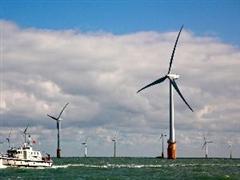|

VOV quoted National Energy Institute of Vietnam Representative Nguyen Anh Tuan as saying that annual 13-15 percent increases in energy demand require exploring as many supplementary energy alternatives as possible.
The country’s aggregate energy demand is predicted to equate to 167 million tonnes of oil by 2030, well beyond its production capacity of 50-62 million tonnes of coal and 20-22 million tonnes of oil.
Vietnam has only begun exploring the potential of its promising bio-gas, wind power, solar power, and geothermal electricity resources.
Centre for Community Research and Development (CCRD) Director Pham Van Thanh said the Government has received support for renewable energy development from international organisations such as the French Development Agency (AFD), the Japan International Cooperation Agency (JICA), the Canadian International Cooperation Agency (CIDA), the Australian Agency for International Development (AusAID), and the Republic of Korea’s KeximBank.
SNV Netherlands Development Organisation is supporting the Vietnamese livestock industry’s bio-gas programme.
The World Bank (WB) provided 201.2 million USD in credit to the country’s renewable energy development programme over the 2009-2014 period.
The German Deutsche Bank and the US Eximbank have offered preferential loans to wind power energy projects in the south-central coastal province of BinhThuan and Bac Lieu province in the Mekong Delta.
Incomplete statistics reveal at least nine non-governmental organisations (NGOs) have undertaken projects supporting renewable energy development in Vietnam. Five others are running communication and education campaigns promoting renewable energy resources like bio-gas, solar power production, and gasoline-saving technology.
The CCRD financed the construction of 10,000 underground biogas generators throughout the country.
The Green Innovation and Development Centre (GreenID) is implementing community-based bio-gas energy models with funding from the Swedish International Development Agency (SIDA) and the Singapore office of Caritas Humanitarian Aid & Relief Initiatives (CHARIS).
GreenID is collaborating with Can Tho University and the GIC Company on drafting solar power energy models tailored to suitable localities in Can Tho, Thai Binh, HoaBinh, Hung Yen, and Ha Tinh.
Phan Thanh Tung, a representative from the German Agency for International Cooperation (GIZ), said GIZ is helping Vietnam’s wind power plant projects. It has already lent its expertise to outlining legislative frameworks for wind power development, collecting wind speed data, and providing technical consultancy.
Some Vietnamese households have installed solar energy panels.
The project’s second phase will run from March 2012 to March 2015 with a focus on shoring up renewable energy laws and regulations and fine-tuning organisational structures.
The lack of national renewable energy law is a deficiency the Government hopes to address as soon as possible.
Sugar mills are reluctant to pursue bagasse energy production because of the discrepancy between the expense of installation and the low electricity prices the Electricity of Vietnam (EVN) insists upon.
Wind power energy plants suffer from similar outlay-benefit imbalances. Setting a fair baseline electricity purchasing price is imperative if renewable energy production is to be encouraged.
(VNA)
|